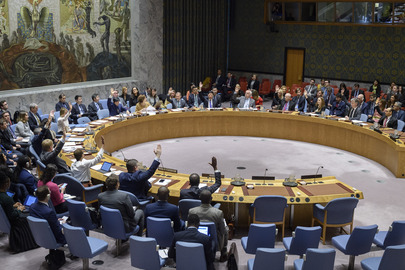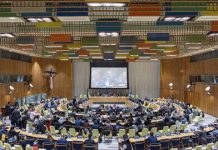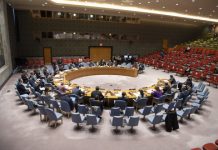Although the subject of mental health has been raised in previous years, it will get top billing at the event, which will also cover the prevention and control of other noncommunicable diseases (NCDs), such as cardiovascular illnesses, cancer, diabetes and chronic respiratory diseases. NCDs remain the leading causes of death and disability worldwide. They are closely connected: for many people, physical and mental conditions overlap, demanding integrated approaches to care.
The scale of the challenge
“This is the first time that we can report more than one billion people have a mental health condition,” Dr. Devora Kestel, Director ad interim of Noncommunicable Diseases and Mental Health/NMH at the World Health Organisation (WHO). “Only nine per cent of people with depression, the most common mental health condition, receive support. Only 40 per cent of people with psychosis receive help. This means then that countries need to come up with more and better ways to develop services to make sure that that care is available and easy to access.”
Even where services do exist, they are often inaccessible due to costs, distance, or lack of integration with other health support. Stigma is also a significant factor dissuading those living with mental health from seeking help.
UNICEF are providing women in Sierra Leone with mental health counselling and psychosocial support.
The Political Declaration due to be adopted at the meeting also aims to encourage knowledge sharing and expanded funding. “Member States have decided to emphasise some issues that are common to all non-communicable diseases, but some that are very specific to mental health, like child and youth mental health, suicide prevention, and efforts to develop services at community level,” Dr. Kestel noted.
Clear links between mental and physical illness
The spread of NCDs is largely driven by five main risk factors: tobacco use, harmful use of alcohol, insufficient physical activity, unhealthy diets, and air pollution. Limited access to diagnosis, treatment and care services also contributes significantly.
Risk factors between mental and physical illness overlap significantly, according to Dr. Kestel. “The promotion of lifestyle interventions that encourage physical activity or healthy diet, or cutting out tobacco and alcohol, are valid for both types of illnesses.
Now, she says, it is time for politicians to act. “We have heard a lot about the importance of mental health over the last few years. We need commitment. We need leaders to understand that there are issues, processes, mechanisms that can be put in place to ensure that there is going to be access to mental health care, from promoting healthy lifestyle to ensuring a person-centred approach to treatment and care with a clear role for people with lived experience.”
Migrants and refugees can be exposed to various stress factors which affect their mental health and well-being.
The upcoming UN High-Level Meeting represents an opportunity to put mental health and NCDs firmly on the global agenda. The declaration will not be, as Dr. Kestel herself noted, a “magic document,” but it can set a new course, unite countries, and demonstrate that accessible and fair mental health care is possible in every corner of the world.
Source of original article: United Nations (news.un.org). Photo credit: UN. The content of this article does not necessarily reflect the views or opinion of Global Diaspora News (www.globaldiasporanews.com).
To submit your press release: (https://www.globaldiasporanews.com/pr).
To advertise on Global Diaspora News: (www.globaldiasporanews.com/ads).
Sign up to Global Diaspora News newsletter (https://www.globaldiasporanews.com/newsletter/) to start receiving updates and opportunities directly in your email inbox for free.





























